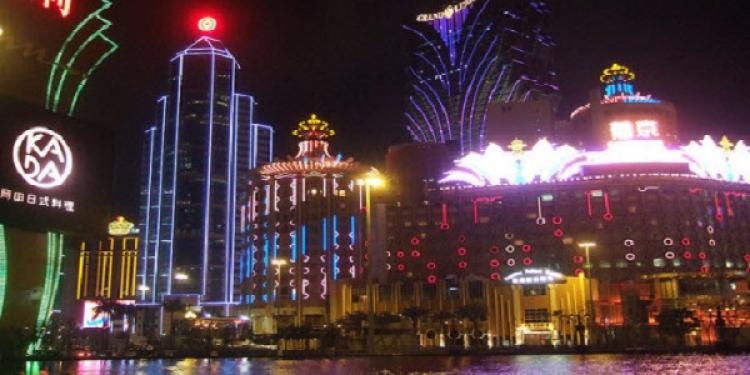Can Macau Survive Without High Rollers and Junkets Operations?
Posted: April 25, 2015
Updated: April 25, 2015

High rollers in Macau may have diminished, but the culture of junket operations, and fears of the ever-present triads in the background is still there.
In the mid 2000s Macau’s gaming revenues was around $7bn in comparison to Las Vegas Strip’s $10bn now its the other way around but maybe not for much longer, thanks to ultra-rich gamblers. But, gambling in Macau is not just about high rollers. It’s about the casinos that attract them as well.
The two benefit mutually. The Macau casinos indulge spend big bucks to attract big spenders. That’s certainly why Macau’s gambling industry has been able to generate over 7times what the Las Vegas Strip, does including Wynn Resorts and MGM, Las Vegas Sands. They now account for a third of profits generated.
Macau’s future as a centre of leisure and business tourism under siege
Las Vegas Sands for one is big into investing in its casinos worldwide. The latest has even persuaded famous footballer, David Beckham to advertise its Las Vegas Sands Corporation casino resort, The Venetian. Thanks to Sheldon Adelson’s big bucks and US Republican clout, he has no trouble being behind one of the many casinos in Macau which together generated over $ 44bn in the 2014 alone.
But all that glitters is not gold, in Macau. Take away the high rollers and Macau has nothing. For the most-well-known and flourishing casino hub in the world is often depicted by US authorities and independent experts as a perfect place for harboring criminals who indulge in ‘money-laundering, triad operations, and is ‘an outlet for corrupt Chinese officials to spend the proceeds of their crimes’.
Well the Chinese government has definitely taken a stance against that. Corrupt officials and money-laundering has been on President Xi’s and his administration’s hit list since last year. That has done much to scare high rollers away. But determined to take their money elsewhere, wealthy Chinese have been going to other nearby gambling places such as the solaire resort and casino Manila, where they can gamble in peace.
Needless to say the clamping down on illegal money movements is leaving Macau high and dry. So much so that earlier in the year when the Chinese celebrated the traditional Chinese new year, a typical period of festivity for gambling operations in Macau, gaming revenues generated were less than half of what it was the previous year.
Up to tens of billions of dollars of money goes unheeded in and out of Macau

The problem is though that casinos in the US don’t work quite the same as Macanese poker rooms do. The former are quite stringent about the safeguards they implement and are able to control what happens in their casinos. US companies must obey US laws against anti-money laundering under the Foreign Corrupt Practices Act. Regular reviews and audits by US authorities of casino groups’ policies can find and weed out such criminals perpetrating such crimes.
While in Macau, most of the casino revenues aren’t because regular gamblers are using slot machines but because mega amounts of the casinos’ revenues are made from high rollers, gambling hundreds of thousands of dollars for a game in a VIP backroom of some sort. Now these VIP rooms, although operating under Macanese gambling laws, are a little special. Here’s how they work.
Groups of promoters called junket operators, attract individuals with loads of money from across the East Asian region. They bring them in to Macau on private jets and offer special accommodation, on occasions. The junket operators work in conjunction with the casinos, even getting a share of the profits by simply providing the facilities.
But organizing Macau’s high-rolling junkets is no simple deal. As it is illegal for wealthy Chinese business people and officials to take more than $50,000 a year out of China at any one time, junket operators solve this problem by giving credits to the wealthy guests.
Triads often recover gambling debts through violence

If high rollers lose their money then they pay it back when they get back to China. However, debts cannot be enforced in the courts. So junkets have to come up with perhaps less than legal ways to be reimbursed. Furthermore the junket operators and their financial backers have to give back the casinos whatever money is owed up front.
Steve Vickers, a former Royal Hong Kong police commander who specializes in Macau’s gaming sector acknowledged that “You don’t need to be Sherlock Holmes to work out that obviously triads and organised crime figures are closely connected to junkets because of the necessity to enforce on losses,. The triad society members can be very brutal in pursuing debts, everything from simply knocking on your door and ringing you up five times a day … to physical assault and whatever.”
But what can anyone do? If Macau’s casino and resort industry is to ever overcome the difficulties it’s facing then it has to take drastic measures. However the intricacies of the junket network often makes it impossible for legislators to point the finger at someone. Otherwise most casino groups swear they go by the books and are not involved in any wrong doing.
Adelson’s Las Vegas Sands seems to want to focus on its Macau casino to bring it out of the slump, hence the mega publicity stunt. But as the crackdown on high rollers who frequent Macau’s gaming industry continues, speculations are that Macau’s way to riches is slowly but surely churning to a halt.












